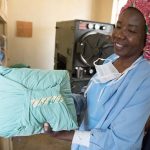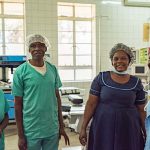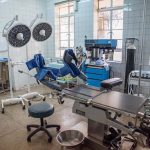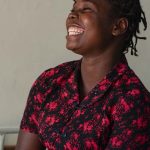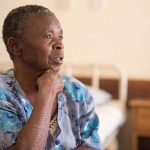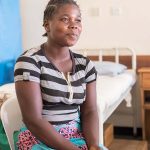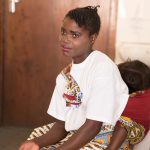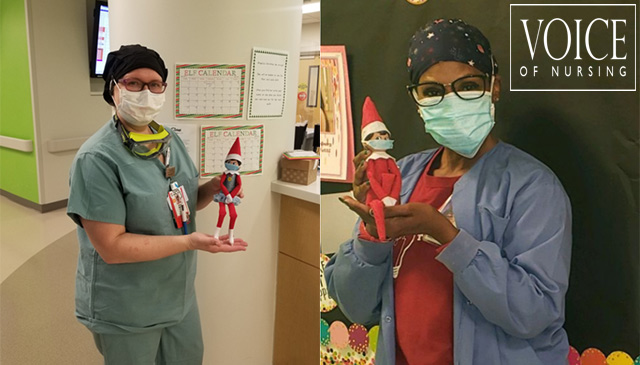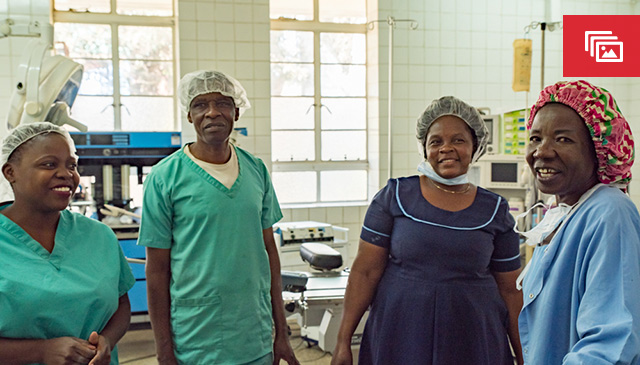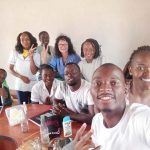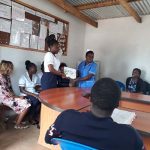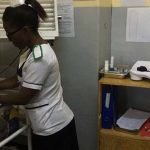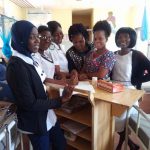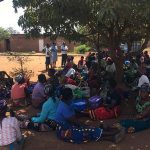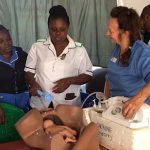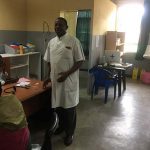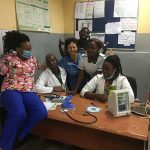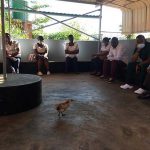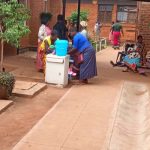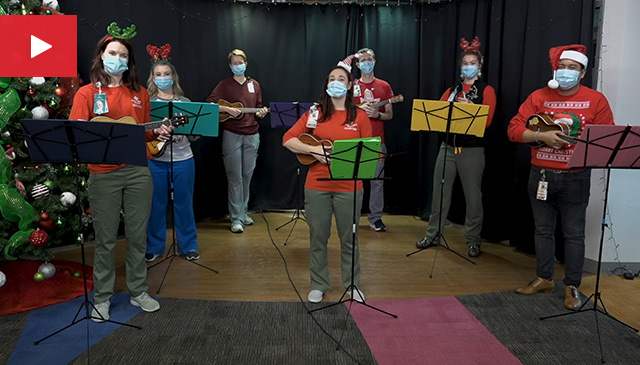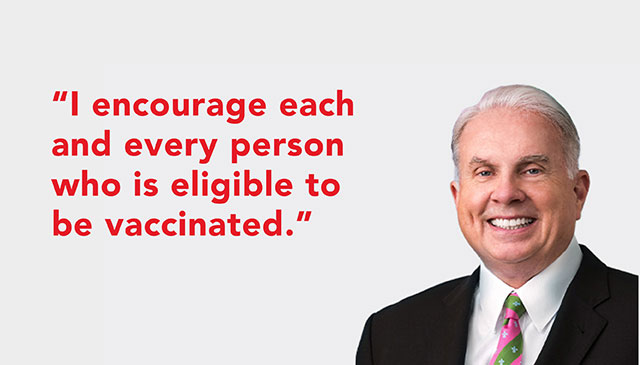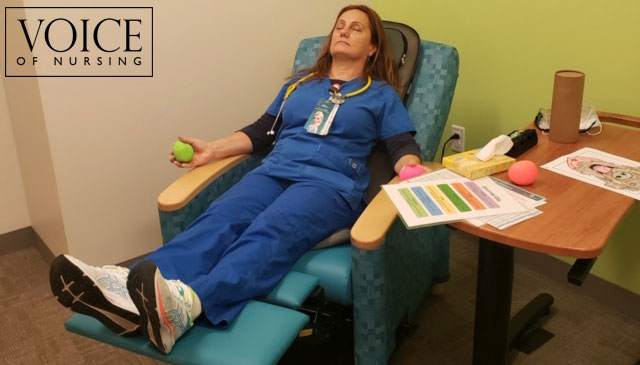The story you are about to read is part of an ongoing series about Texas Children’s efforts to care for women and children around the globe. The series highlights Texas Children’s efforts in Malawi, one of the 17 countries we currently serve. Today’s story focuses on women’s health and the services Texas Children’s, in partnership with Baylor College of Medicine, offers to women suffering from obstetric fistula, a life-changing complication of childbirth that is extremely common in sub-Saharan Africa where specialized medical services are hard to find.

Dita Zakiyeli clasped her 2-year-old daughter’s hand as a group of women at the Freedom from Fistula Care Center in Lilongwe, Malawi, circled around them and broke into song. The celebration marked the end of Dita’s month-long stay at the center where she received life-changing surgery to correct a condition that affects tens of thousands of women in sub-Saharan Africa, often leaving them withdrawn from their social lives and ostracized by their loved ones.
Dita arrived at the center after hearing about how the staff there had helped other women suffering from obstetric fistula, a complication of childbirth resulting in damage to pelvic and reproductive organs, causing constant urinary or fecal incontinence. Most fistulas are caused by prolonged labors and lack of access to timely cesarean delivery. Dita developed the condition when she was 19 while trying to give birth to her first child. The child did not survive and Dita’s husband left her because of her fistula and the symptoms it causes.
“Some of our patients have told us their families have kicked them out, and other times the women feel embarrassed or ashamed and move out on their own,” said Dr. Jeffrey Wilkinson, who has been operating on women at the Fistula Center for the past decade. “Obstetric fistula leads to a life of social isolation, no matter which way it happens, and many women feel cursed because they also have lost their babies in the process.”
It is estimated that more than two million women in Africa – 20,000 in Malawi alone – live with obstetric fistula, even though it is preventable with access to the right kind of obstetric and gynecological care. But in a place like Malawi, there are many barriers to even the most basic care. In some cases, a woman might give birth in a medical facility that doesn’t have an operating room much less a surgeon. In other cases, there might be an operating room available, but not the right equipment or the expertise needed to perform the type of surgery that’s required.
An offering of hope
Texas Children’s and Baylor College of Medicine through the team they support at the Freedom from Fistula Care Center in Lilongwe, Malawi, are working together to provide hope to women like Dita. Run by Texas Children’s Global Women’s Health and the Freedom from Fistula Foundation, the center and its staff care for and surgically treat women with obstetric fistula. Since opening its doors in 2011, the team has performed more than 2,500 fistula repair surgeries – about 400 a year – with a 90 percent success rate.
“The difference the work this team has made in the lives of so many women and their families is tremendous,” said Dr. Ennet Chipungu, a Malawian native and the center’s medical director. “The teaching and training they have provided to local medical professionals is equally as impactful.”
Chipungu herself was trained by Wilkinson as part of a one-year individualized fellowship in obstetric fistula care. The Freedom from Fistula Care Center benefits from these individual fellowships as well as the Texas Children’s Obstetrics and Gynecology Global Women’s Health Fellowship.
The goal of the Texas Children’s Obstetrics and Gynecology Global Women’s Health Fellowship is to provide fully-boarded or board-eligible obstetrician/gynecologist with additional clinical training and research experience in a global setting. So far, three fellows have graduated from the program. One still works in sub-Saharan Africa and the other two work with underserved populations in the US. All are from the US.
In addition to these fellowships, the center’s staff is augmented by two residency programs, the first of which began in 2014 with help from Texas Children’s and Baylor College of Medicine. Housed under the Malawi College of Medicine, the program has graduated 14 residents and currently has 14 enrolled.
A new residency program for local Malawians studying women’s health began last year for residents at Baylor. Rachel Kopkin is the program’s first resident. She will spend six months out of four years in Malawi during her residency.
“There are not very many places where you can get fistula surgery in Africa because it takes specialized training,” Wilkinson said. “It’s not something the typical OB-GYN in the US has even seen or can repair. That’s why the Fistula Care Center and its training program is so important. We have expert surgeons, nurses and staff taking care of these women and we have the knowledge and capability to handle both basic and complex cases.”
Spreading the word
In addition to the fellowship and residency programs, Chipungu, Wilkinson and their colleagues have started training surgeons throughout Malawi to do simple fistulas because they don’t take quite as much expertise and specialized postoperative care. The complex cases, however come to the center.
Fainess Pheleni, for example, came to the center with a fistula and a severe amount of scar tissue. With the help of Texas Children’s Surgeon-In-Chief Dr. Larry Hollier, who has helped train some of the fistula surgeons in basic reconstructive plastic surgery techniques, the team repaired Fainess’ fistula and her scar tissue, allowing the 22-year-old to move past the health issues that had plagued her well-being for some time and took the life of her only child.
“Being able to fix a woman’s fistula and reconstruct some of the damage it has caused has made a huge difference in our patient’s outcomes,” Chipungu said. “Unfortunately, there is a disparity here between what’s available for women to do and how they can support themselves. Having a family, not just a husband, but also children, is paramount to their existence. So, fertility is extremely important, and with fertility comes sexual intercourse. So for our patients who aren’t able to have intercourse, it means they’re not able to find a husband and they’re not able to have an economic stable livelihood.”
The team at the Fistula Care Center provides the physical, and many times the emotional and mental, care these women need to get back on their feet again. For Dita and Fainess, the help they received at the center gave them a chance at a new life.
“I was extremely well cared for while I was here,” Dita said. “They gave me everything I needed, to start over again.”
For more information about The Freedom from Fistula Care Center, click here. To make a donation to Texas Children’s global health efforts, click here.


